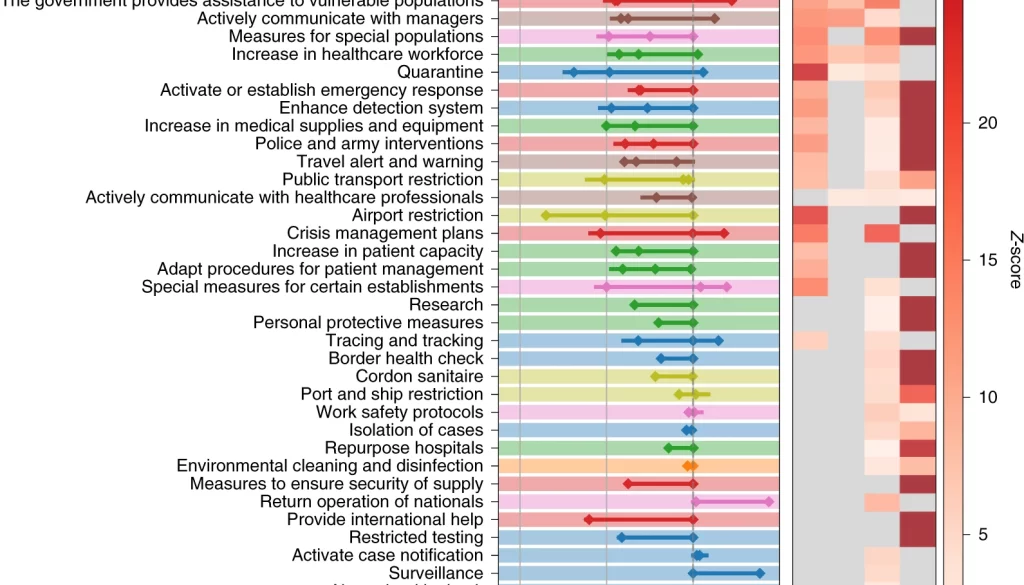Haug, N., Geyrhofer, L., et al. 2020. “Ranking the effectiveness of worldwide COVID-19 government interventions.” Nature Human Behaviour volume 4, pages 1303–1312 (2020) 16 November 2020
Assessing the effectiveness of non-pharmaceutical interventions (NPIs) to mitigate the spread of SARS-CoV-2 is critical to inform future preparedness response plans. Here we quantify the impact of 6,068 hierarchically coded NPIs implemented in 79 territories on the effective reproduction number, Rt, of COVID-19. We propose a modelling approach that combines four computational techniques merging statistical, inference and artificial intelligence tools. We validate our findings with two external datasets recording 42,151 additional NPIs from 226 countries. Our results indicate that a suitable combination of NPIs is necessary to curb the spread of the virus. Less disruptive and costly NPIs can be as effective as more intrusive, drastic, ones (for example, a national lockdown). Using country-specific ‘what-if’ scenarios, we assess how the effectiveness of NPIs depends on the local context such as timing of their adoption, opening the way for forecasting the effectiveness of future interventions.
“While in previous studies, based on smaller numbers of countries, school closures had been attributed as having little effect on the spread of COVID-19 (refs. 19,20), more recent evidence has been in favour of the importance of this NPI28,29; school closures in the United States have been found to reduce COVID-19 incidence and mortality by about 60% (ref. 28). This result is also in line with a contact-tracing study from South Korea, which identified adolescents aged 10–19 years as more likely to spread the virus than adults and children in household settings.
https://www.nature.com/articles/s41562-020-01009-0



